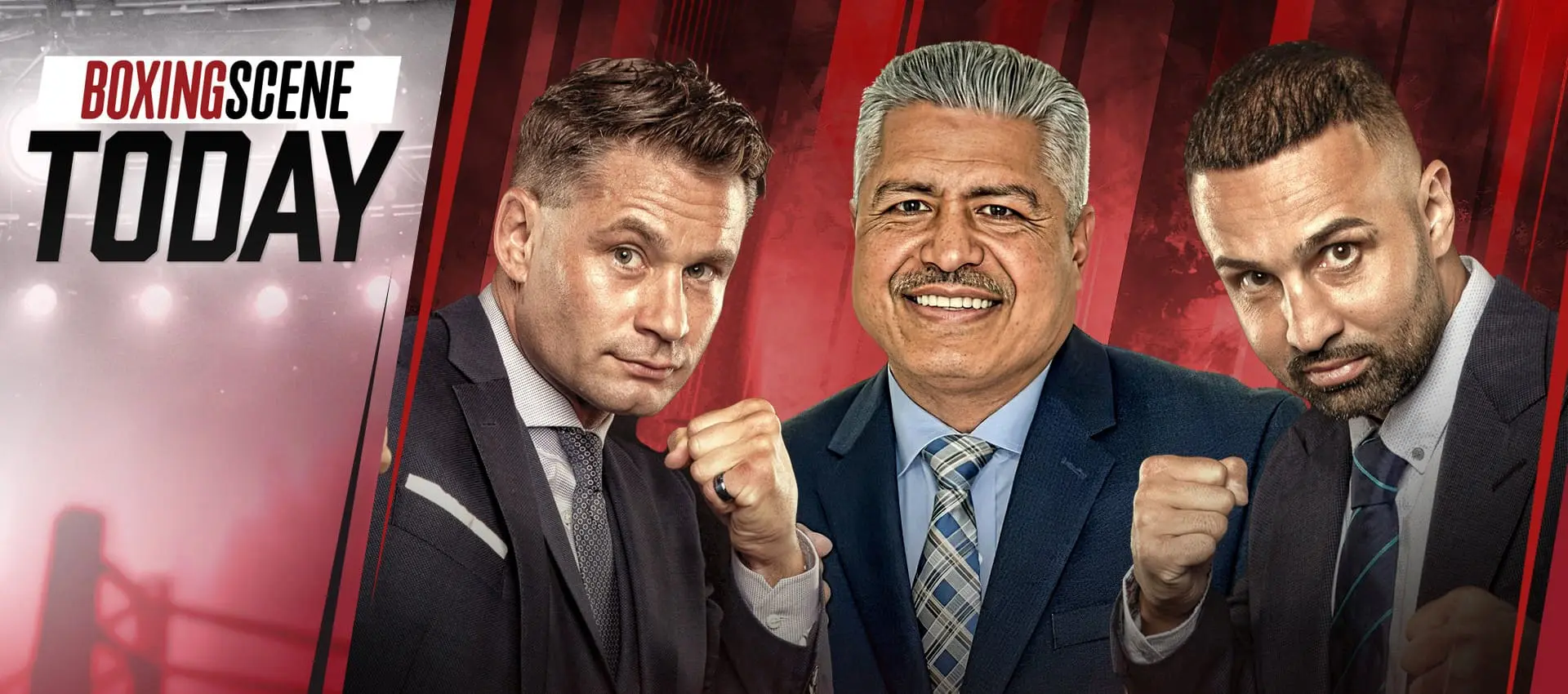
Sunday | Feb 22, 2026 | 8:00 PM EST
Claressa Shields vs Franchon Crews-Dezurn
DAZNDetroit, Michigan

Friday | Feb 27, 2026 | 7:00 PM EST
Rene Tellez Giron vs Luis Torres
Ruben Aguilar vs Louie Lopez
Edward Vazquez vs Grimardi Machuca
ProBox TVArlington, Texas

Saturday | Apr 4, 2026 | 12:00 AM EST
Deontay Wilder vs Derek Chisora
DAZNLondon, United Kingdom
'BoxingScene Today'Talk Show
Pauli, Algieri, and Coach Garcia breakdown today's top stories

Upcoming episode - coming soon
Boxing Interviews
Interviews with boxing biggest stars










